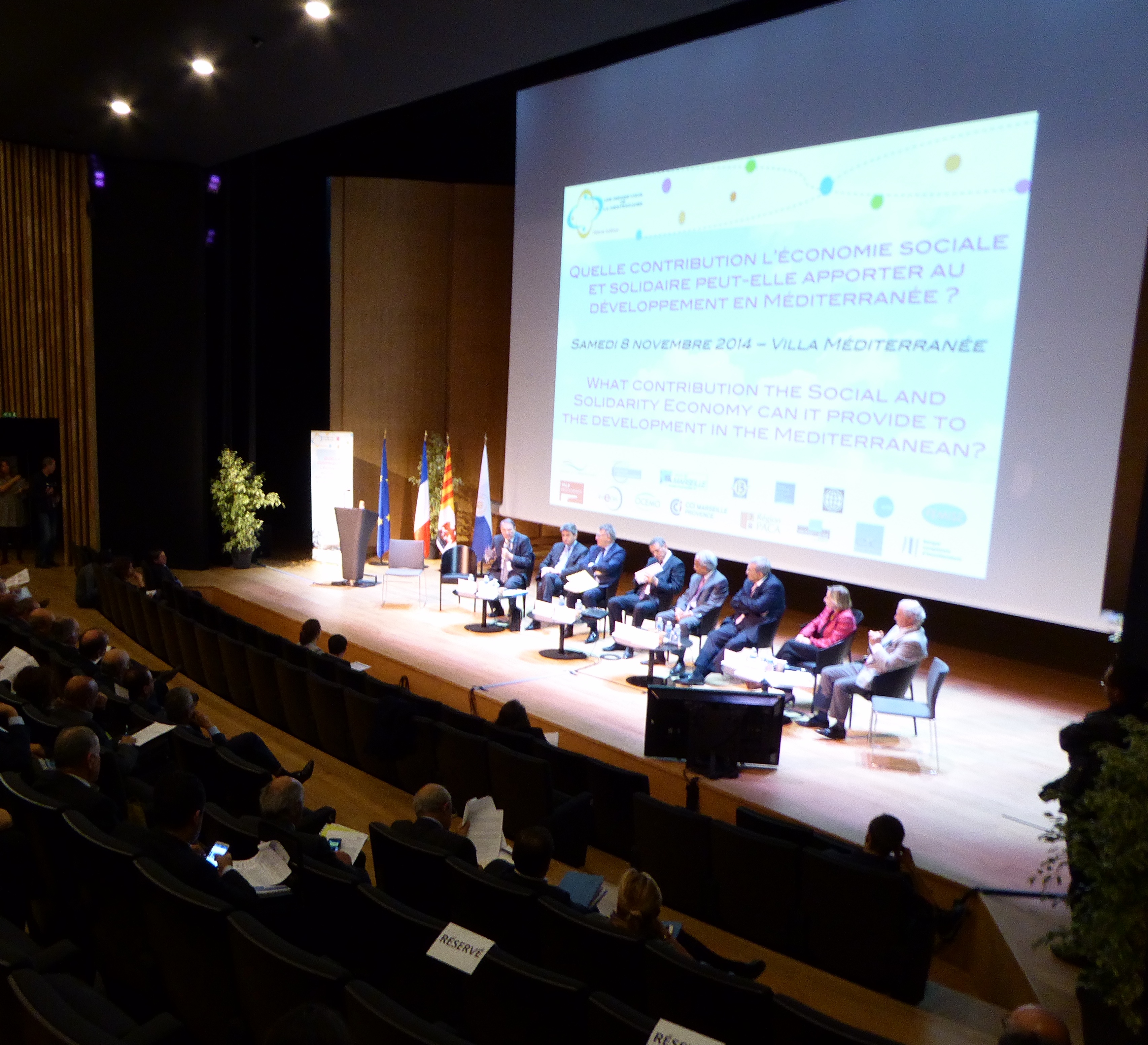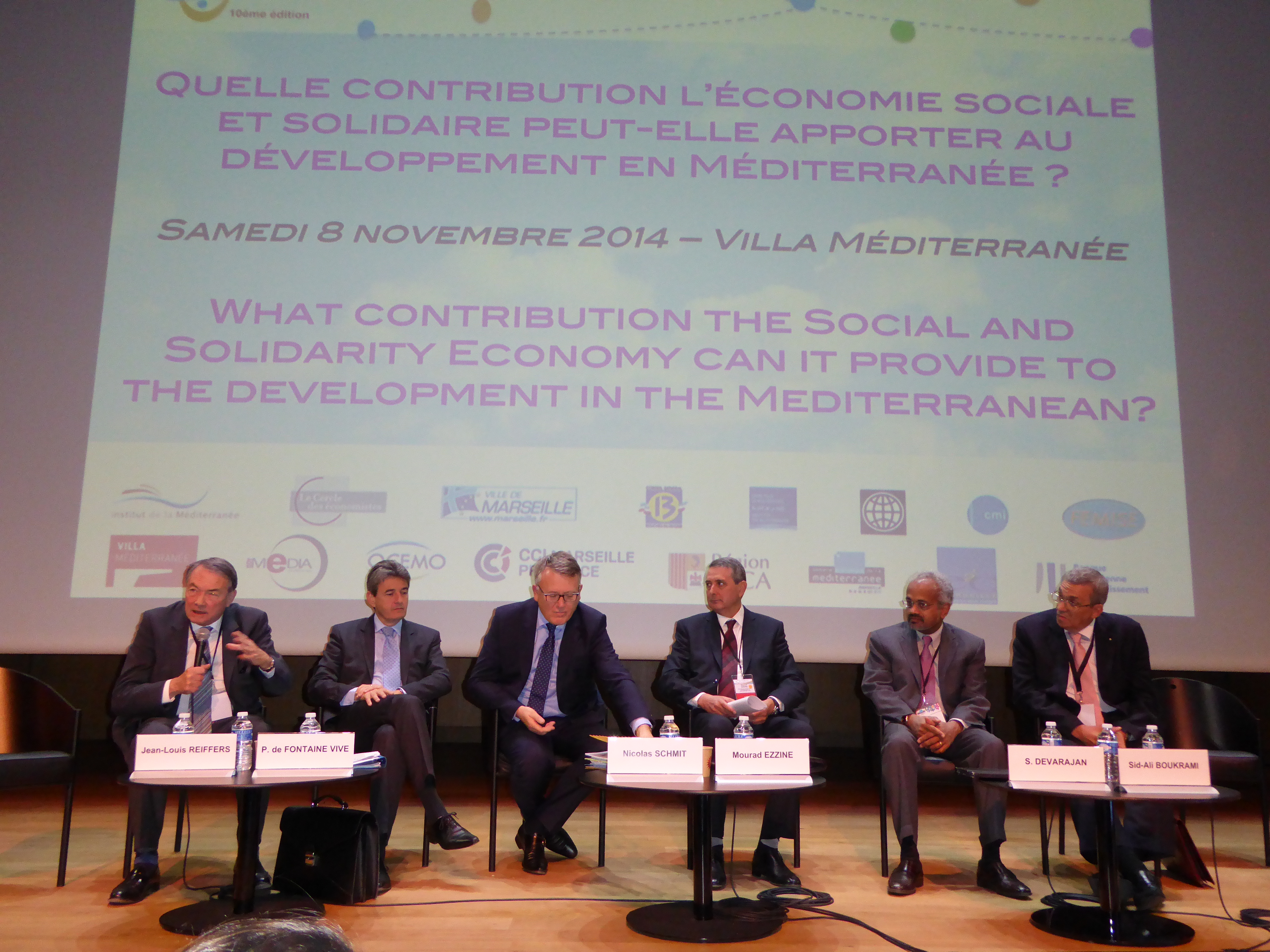The Final Declaration of the 10th Mediterranean Economic Rendezvous
Marseille, November 8, 2014*
The 10th Mediterranean Economic Rendezvous was held Saturday, November 8 in conclusion of the Economic Week of the Mediterranean Villa Mediterranean in Marseille in the presence of a large audience from Politicians to Academics from different Mediterranean countries, and who addressed the issue of:
“What contribution the social and solidarity economy can bring to the Development in the Mediterranean?”
In continuation of the work of the previous year, emphasizing the importance of the link between the future of the Mediterranean region and that of its youth, the participants in this conference pushed the idea that the social and solidarity economy (SSE) could be a vector of social cohesion. This is done by through involving and integrating the entire sections of the population that are left out.Participants considered that the contributions of the SSE, whereby creating a development model with its own specificities and with limited involvement of the financialization of the economy, were:
– Include excluded groups and provide them some autonomy
– Responding to the lack of economic diversification
– Integrate and develop new forms of wealth creation
– Provide a response to the demographic issues and build intra and inter generational solidarity.
To achieve the goal of establishing a model of resilient and inclusive development, the participants agreed on the following recommendations:
– Taking into account new forms of wealth creation that represent all social and solidarity economy initiatives including the micro, the family-based, local and reaching but also the cooperatives, mutuals, and associative.
- Provide legal and regulatory framework of the ESS
- Integrate the ESS component in the state territory conventions and enact a “Small business act”
- Give local authorities the means to act and mobilize resources the field of ESS

– More effective resource mobilization and local financial actors: suitable and better organised financing channels to drain institutional and private funding
- Create a financial institution capable of creating and managing the right tools : associations, participatory loans, associative contracts with contributions
- Create an associative seed funds, first step toward financial structuring
- Adapt the microfinance legislation and reinforce the micro- credit access to all sectors’players
– Better coordination among international agencies to avoid loss of funding to the SSE sector and provide an alternative to the lack of public funding in some countries
- Emphasize the regional dimension of multilateral financing for projects
- Create a fund bringing all resources to ESS to countries the Mediterranean
- Establish a guarantee fund by states through international institutions
Finally, participants agreed on the need for a shared vision in the context of a charter for a new social contract for the Euro-Mediterranean youth. This Charter will commit the public and sensitize the population to the tools and resources of the SSE. It would define a political framework including the whole of civil society.
* The tenth conference of the Mediterranean Economic Rendezvous was organized by Institut de la Mediterranée/Femise and Le Cercle des économistes and concluded Marseilles’ Mediterranean Economic Week, which started on November 3rd. Other organizations joined the initiators of this program, such as the Provence-Alpes-Côte d’Azur Region, the City of Marseille, the World Bank through the Centre for Mediterranean Integration in Marseille (CMI), the Office of Economic Cooperation for the Mediterranean and the Middle East (OCEMO) and the European Investment Bank (EIB). In addition, other organizations specifically geared towards the Euro-Mediterranean region also participated, such as the Interdepartmental group 5 + 5 related to the French Prime Minister and the General Secretariat of the Union for the Mediterranean.
To access the full minutes of the conference (click here, only available in French)
To access the the full programme
The content of the conference was based on a report prepared by FEMISE and commissioned by the European Investment Bank. To download the executive summary of the report click here (the full report is only available in French)



